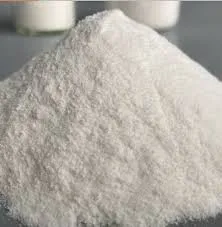
Nov . 10, 2024 03:59 Back to list
Exploring Applications and Benefits of HPMC in Various Industries and Fields
Understanding the Uses of HPMC
Hydroxypropyl Methylcellulose (HPMC) is a versatile semi-synthetic polymer that has gained significant recognition across various industries due to its unique properties and applications. It is derived from cellulose, a natural polymer sourced from plant fibers, and is modified through a chemical process to enhance its usability in diverse settings. This article will explore the multifaceted uses of HPMC, highlighting its key applications across industries.
Pharmaceutical Industry
One of the most prominent uses of HPMC is in the pharmaceutical field. HPMC is widely used as a thickening agent, stabilizer, and emulsifier in the formulation of drugs. Its ability to form gels and maintain viscosity makes it an ideal choice for controlled-release drug formulations. When used in oral medications, HPMC ensures a gradual release of active ingredients, enhancing therapeutic efficacy and minimizing side effects. Additionally, it is utilized in ocular preparations, such as eye drops, due to its excellent film-forming properties, which help in improving the retention time of medication in the eye.
Food Industry
HPMC is also extensively used in the food sector, where it serves as a food additive. It is recognized for its ability to improve texture, stabilize emulsions, and enhance moisture retention in various products. HPMC is particularly valuable in gluten-free baking, where it can mimic the viscoelastic properties typically provided by gluten. By doing so, it helps achieve a desirable texture in bread and other baked goods, making them more palatable to consumers. Additionally, HPMC acts as a thickener in sauces, dressings, and dairy products, providing a pleasant mouthfeel and improved consistency.
Construction Industry
hpmc uses

In construction, HPMC is incorporated into cement formulations and other building materials due to its water-retention and binding properties. It is commonly found in tile adhesives, plasters, and wall putties, where it helps improve workability and prevents cracking by retaining moisture during the curing process. The addition of HPMC to these materials enhances their performance, leading to better adhesion and durability.
Cosmetic and Personal Care Products
The cosmetic industry also benefits from HPMC’s unique properties. It is frequently used in skin care products, shampoos, and conditioners as a thickener and stabilizing agent. HPMC aids in achieving an appealing texture and consistency in creams and lotions, enhancing user experience. In addition, its film-forming characteristics allow for the creation of protective barriers on the skin, which helps to lock in moisture and provide hydration.
Agriculture
In agriculture, HPMC is employed as a soil conditioner and a stabilizing agent in the formulation of pesticides and herbicides. Its ability to improve water retention in soil and enhance the release of active ingredients contributes to more effective crop management and healthier plant growth. Moreover, when used as a component in seed coatings, HPMC can assist in protecting seeds and improving their germination rates.
Conclusion
The versatility of Hydroxypropyl Methylcellulose makes it an invaluable component across multiple industries. From pharmaceuticals to food production, construction materials to cosmetic formulations, HPMC demonstrates its remarkable ability to enhance product performance and consumer satisfaction. As research and technology advance, the potential applications of HPMC are likely to expand further, paving the way for innovative solutions that meet the evolving needs of various markets. With its myriad of applications, HPMC stands out as a truly multifunctional polymer, contributing significantly to many aspects of modern life.
-
Versatile Hpmc Uses in Different Industries
NewsJun.19,2025
-
Redispersible Powder's Role in Enhancing Durability of Construction Products
NewsJun.19,2025
-
Hydroxyethyl Cellulose Applications Driving Green Industrial Processes
NewsJun.19,2025
-
Exploring Different Redispersible Polymer Powder
NewsJun.19,2025
-
Choosing the Right Mortar Bonding Agent
NewsJun.19,2025
-
Applications and Significance of China Hpmc in Modern Industries
NewsJun.19,2025







